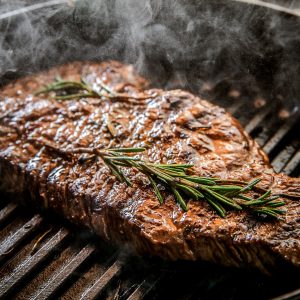A Must Read If You are Thinking of Going To Culinary School to Become a Professional Cook
By: Chef Alan Bickel
America’s fascination with food has gone mainstream. It now shines a light on the culinary world most people have never seen. The rise of The Food Network and shows like Iron Chef and Hell’s Kitchen inspires many to try cooking themselves. They watch celebrity chefs like Emeril Lagasse or Bobby Flay create incredible dishes and think, “That looks fun! Maybe I should do that too!”
But the reality is different. Shows like The Naked Chef skip the years of training, hard work, and dedication needed to reach that level. Celebrity chefs become role models, and many believe they’ll host their own cooking show after a few years in culinary school. However, this simply isn’t true.
Most people don’t realize that the chefs on TV represent only a tiny slice of the food service industry. Hundreds of thousands work long, grueling hours in kitchens across the country. Yet, only a few ever step into the spotlight to showcase dishes like Ham Hocks and Shrimp Creole on national television.
The Costs
Thinking about culinary school? Be prepared to invest thousands of dollars. Professional cooking isn’t a game or a way to learn a few tricks for impressing friends at parties. If that’s your goal, find some recipes online or explore other sections of ReluctantGourmet.com. Working in a kitchen involves repetitive, sweaty, and fast-paced physical labor.
Culinary school comes with hefty loans, often totaling $20,000 to $30,000. Also, this degree doesn’t transfer easily to other fields. If you decide the restaurant industry isn’t for you, you may face a mountain of debt without a backup plan.
The Lifestyle of a Professional Cook
Say goodbye to holidays, weekends, and evenings off. Kitchen work as a professional cook means long hours and late nights. Most shifts end close to midnight, leaving little time for socializing with friends who work 9-to-5 jobs.
This lifestyle isn’t for everyone. But if you truly love cooking, the rewards go beyond money. Still, the physical toll is real. Expect to stand 10-12 hours a day, handle heavy products, and scrub cooler walls and floors. Kitchens often lack air conditioning, with temperatures regularly exceeding 100°F on the hotline.
Finding a Job as a Professional Cook
After graduation, don’t expect to become a professional chef immediately. The industry is competitive, and many others have already built strong reputations. Focus on finding the best restaurant you can. Look for places known for excellent cuisine, long-standing reputations, and food you love.
If you’re a baker, work in a bakery. If you love vegetarian cuisine, don’t waste time in a steakhouse. Spend time researching where you’ll be happiest. Visit restaurants, talk to chefs, and tour kitchens during interviews. Finding the right fit can make the difference between surviving and thriving.
A Reality Check
This isn’t meant to scare you but to give an honest look at the less glamorous side of kitchen life. Brochures won’t show you the challenges, but they’re real. However, those with a true passion for food take these obstacles in stride.
Six years in the kitchen have brought me more experiences than I ever imagined. The possibilities are endless for those who embrace this craft as more than a job. It’s a way of life, filled with challenges and opportunities for growth.
If you like this article and want to read my interview with Alan, visit my Novice to Pro Interview with Chef Alan Bickel.





7 Responses
Great read, I have been in the food business professionally for about 2 years, if you consider making fresh pizza dough all day “professional cooking”. I Recently landed a Dishwashing job in a retierment home kitchen. yes the kitchen life is hard sometimes. but I worked my way out once and was promoted to line cook (without a pay raise) by a…less than desirable chef. He was fired and replaced with a better if not ruder chef. I was shortly after demoted back to Prep. and 3 days later to Dishwasher. I toiled in that pit for about 3 months but they saw how hard I was working and recently promoted me back to line-cook. The chef was shortly fired afterwards for being a jerk. yesterday after my ex-sous chef(current head of kitchen) came from a meeting he told me I was going to become the night time supervisor. (I am the second youngest person in that kitchen(21)). yea cutting 30 onions gets old sometimes but there is something about how it all goes together at the right time that is just exciting.
P.S. to anyone new to professional cooking. 2 jobs are better than one.
great advice. i have been “in the business” for pushing 20 years and it is time to get some official training. i am looking at the International Culinary Institute in NYC. I have a Master’s degree but it has been a while since i did the financial aid process. Can you please assist me in finding any scholarships or grants that may be available. Thank you for any assistance you can provide
Working in the restaurant industry can be difficult; it can also be very rewarding, just as many other career choices are. Graduates of Star Career Academy learn both inside and outside the classroom through classes and externships. Many students have found success after graduation, happily working in various areas of the culinary industry. Interested in a career in the culinary arts?
This is a very good culinary academy and you can read more about them at http://www.gatewaygourmet.com/long_island_cooking_school.htm
Thank you very much for the great information on your page. I have a passion for cooking. Grew up in South America helping my grandmother cook for dozens of family and workers on the farm and though I have a career in a completely different profession, the kitchen calls to me.
It would be a dream and is becoming my husband and my goal to own a small bistro much later on in life. I do not have any formal education or experience in cooking, at all! However, we are currently living in Europe for a few years and I have a deep hunger for grasping knowledge of the area. It is doable to take courses in Germany, France, Spain, Austria and such but I don’t know where to start. It is my plan to attend culinary school (east coast) upon our return to the states but again, I sense it’s a great idea to learn how to make sauces, crusts and such while in Europe. I have seen cooking vacations and a colleague even went to France for a day class at Le Cordon Bleu. I have also spoken with a manager at a local American chain restaurant for a starting position (to start paying dues and work my way up)…
What would you do in my position? Your recommendations are appreciated.
Thank you.
Hi Sandra, I would suggest you spend as much time in the kitchen working on your techniques, reading as much as you can about becoming a chef along with certain cookbooks that describe techniques you’ll need to learn, look for any local cooking classes taught in local schools and restaurants and if possible finding a local restaurant that might let you volunteer or better yet pay you to do some prep work where you will learn more about life in a professional kitchen where you can decide if this is the right career for you. Whew, that was a mouthful. As for the American chain restaurant, I guess it depends on which chain you are referring to. If it’s a fast food burger joint, I’m not sure how much you are really going to learn but if it’s one of the higher end chain restaurants, that would be different. Good luck to you Sandra and please keep us updated with your cooking career.
Can you list a couple of the books you refer to that you would recommend to use for learning techniques?
Great question Zak. It really depends on what level cook you are but I’ll have to add a cooking techniques section on my Recommended Cookbooks page. Off the top of my head, I would suggest James Peterson’s Cooking, Cooks Illustrated’s The Science of Good Cooking and Mark Bittman’s How to Cook Everything – the basics.